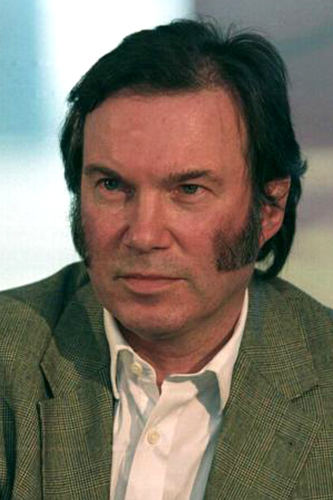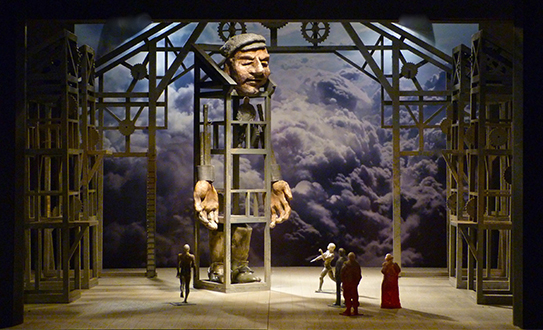March 06, 2019
Ring Up the Curtain!
The appeal of Wagner’s Ring cycle is timeless. “It’s a mythological story,” says David Pountney, the internationally celebrated British director who opens Lyric’s 2016/17 season with Das Rheingold, beginning his own first complete Ring production. “All such stories are stories about then and about now and about the future. That’s the point of mythical stories. They’re always topical.”

Director David Pountney
Hugely important to Pountney’s Ring is telling the story, one that we can all interpret as we choose. “I’m trying quite hard to avoid dictating to the audience how this work should be interpreted. It’s the audience’s job to decide that. I am trying to tell a story and highlight the act of storytelling, in terms of the rather naïve theatrical effects that we employ to tell our story.” Pountney considers Rheingold probably the best story of the four Ring operas, “because it’s so action-packed and so full of detail.”
The four operas will be “united by a single theatrical device. We keep trying to go back to an empty stage to show, in the end, that this is all just a stage, just a theater. However splendid the effects are, when we roll them up and whisk them away, we go back to an empty stage. We do this at the beginning and end of Rheingold.”
Pountney’s production views the gods in Rheingold early in the opera as a kind of nomadic theater company “from the old days — Molière or Shakespeare. They’re constantly journeying, but they reach a point where they’re going to build themselves this castle. The end of Rheingold [the entrance of the gods into their new home, Walhalla] is the transition from a nomadic existence into imperial splendor.”

Das Rheingold set model.
A group of stagehands, actors and dancers, to be referred to as “The Crew,” will be hugely important in this Ring. They’ll be onstage implementing certain traditional theatrical techniques during the performance. Technically speaking, “Rheingold is the most virtuosic of the four operas and careens wildly between different spaces,” notes Pountney. “There are tricks onstage, whether it’s dragons or people floating in the water.”We have three important trap doors — mechanically operated traps that we’ll use throughout the cycle.” The set brings to mind elements of “an old-fashioned wooden theater,” which would have had “proscenia and bridges that can fly in and form a way in which people can move from one place to another.”
The two giants — always a challenge in Rheingold productions — “are represented by their heads at the top of these towers, and then their arms and feet that are manipulated by puppeteers. They can fight or build by throwing their arms and feet around. ‘The Crew’ will do that. Again, we’re being true to the story; we’re showing you a giant, but we’re showing you how we’re showing you a giant. The spirit of fun and play and invention is an important part of Das Rheingold.”

